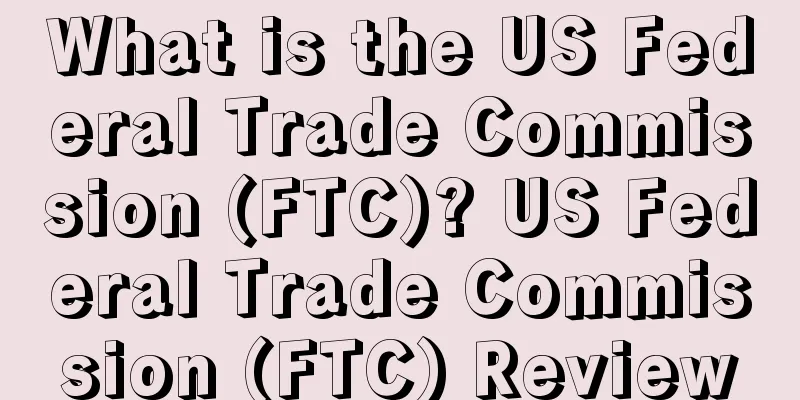What is the US Federal Trade Commission (FTC)? US Federal Trade Commission (FTC) Review

|
The Federal Trade Commission (FTC) is a federal agency that enforces a variety of antitrust and consumer protection laws. The FTC was established in 1914 to ensure that the nation's markets are competitive, prosperous, and efficient, and free from unreasonable constraints. The FTC also ensures and promotes smooth market operations by eliminating unreasonable and deceptive rules or regulations. Established on September 26, 1914 Chinese name Federal Trade Commission Foreign name Federal Trade Commission Purpose Ensure that the nation's markets are competitive 1. Job Responsibilities Generally speaking, the FTC's work is mainly to prevent behavior that may harm consumers. When Congress, administrative agencies, or other independent agencies, as well as state and local governments need to discuss policy, the FTC will provide relevant information. The FTC can conduct investigations in different ways. Letters from consumers, requests from businesses or Congress, or articles about consumer and economic issues may lead the FTC to take action. Such investigations can be public or private, but generally speaking, FTC investigations are kept private to protect the company and the investigation itself.
2. Control Objectives If the Federal Trade Commission believes that a company has violated regulations, it must first sign an agreement with the company and then obtain the company's voluntary cooperation. When a company signs this agreement, it does not have to admit that it has violated the law, but it must agree to stop the controversial behavior that caused the consumer complaint. If the two parties cannot reach a consensus, the Federal Trade Commission will file or file an administrative complaint. Once a regulatory complaint is filed or presented, it is like a trial before a judge: evidence is presented, testimony is heard, witnesses are questioned and cross-examined. If a violation is found, an injunction or other appropriate statement is made. The initial decision made by the judge should reflect the wishes of the entire committee. The final outcome of the trial should be determined by the Commission and reflect the will of the U.S. District Court. If the Commission is in favor of the position, the FTC may seek certain consumer damages in court. Conversely, if the company has violated the law, the FTC may also seek civil damages or an injunction. In some cases, the FTC goes directly to court to seek injunctions, civil damages, or consumer redress. This usually occurs in ongoing consumer deception or fraud cases. By going directly to court to seek injunctions or damages, the FTC can prevent deceptive practices before more consumers are deceived. In addition to the responsibility of enforcing mandatory laws, the Federal Trade Commission also, at the request of Congress, expands the impact of its policies through non-mandatory measures, such as consumer education.
3. Current Leadership Delegate Chair: Rebecca Kelly Slaughter References
|
<<: What is Lilanda? Lilanda Review
>>: What is LightInTheBox? LightInTheBox Review
Recommend
What is Kickstarter? Kickstarter Review
Kickstarter was founded in New York, USA in 2009. ...
Competition in the US live streaming e-commerce market intensifies, and amateur anchors become a new growth force
Although the live e-commerce market in the United ...
What is FBW? FBW Review
FBW (Fulfillment By Wish ) means that merchants on...
How to solve the two major pain points of Amazon operations?
text Question: FBA products are slow to be put on...
Prime Day date set? It is expected to be held as scheduled, sellers should not miss it
It is learned that air freight prices have skyrock...
What is houseofvoltaire? houseofvoltaire review
houseofvoltaire commissions and sells unique artwo...
Online item prices fell 1.9% year-on-year in November! The turning point of US inflation has arrived!
<span data-docs-delta="[[20,"获悉,近日Adobe公布了...
Facebook personal account maintenance tips, best practices for account settings
Why was my Facebook account deactivated? There ar...
Collection|Problems and solutions for brand registration
Amazon brand registration refers to applying for b...
What is Tenghui Electronics? Tenghui Electronics Review
Shenzhen Tenghui E-commerce Co., Ltd. is a cross-b...
What is SCI Ecommerce? SCI Ecommerce Review
SCI Ecommerce is the fastest growing e-commerce se...
The most complete guide to opening a Shopify store, you will know everything after reading it
Previously, we launched a 30-day series of tutori...
What is Foodpanda? Foodpanda Review
Foodpanda is a startup that provides one-stop serv...
What is Xtractor? Xtractor Review
Xtractor is an extension plug-in running on Chrome...
In 2018, the penetration rate of e-commerce in the United States reached 22.7%, and the proportion of online sales continued to increase.
It is learned that on March 3, according to foreig...









